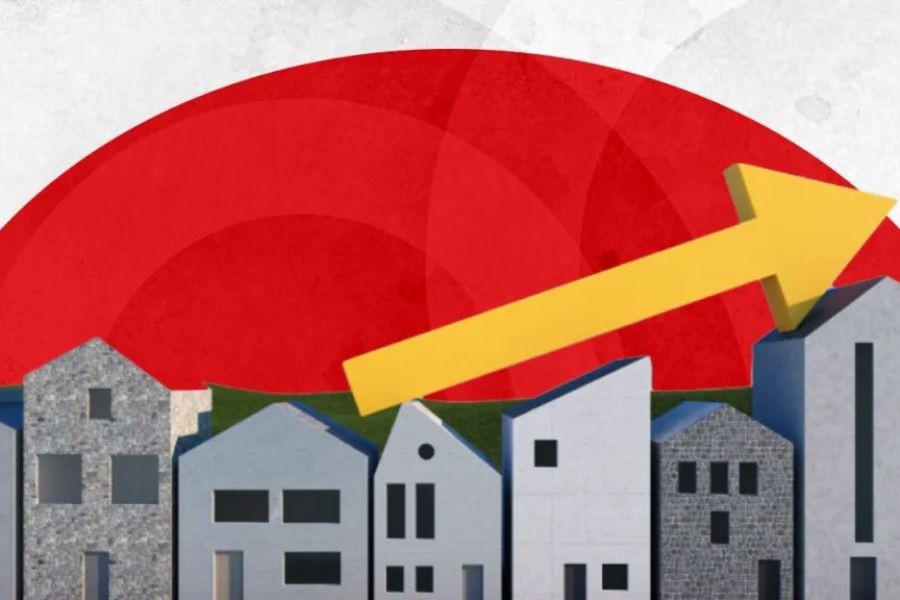New Zealand's housing market has long been a subject of intrigue and debate among investors, both locally and globally. With its stunning landscapes and stable economy, the country presents a unique investment opportunity. However, is it a better investment than the United States, a traditional powerhouse in the property market? This article delves deep into this question, offering a comparative analysis backed by data, expert insights, and real-world examples.
Understanding the Housing Market Dynamics
To discern whether New Zealand’s housing market is more advantageous for investors compared to the United States, it’s crucial to understand the underlying dynamics of both markets.
New Zealand’s Housing Market
New Zealand's real estate market is characterized by limited land availability, high demand, and significant foreign interest. According to Stats NZ, house prices in New Zealand have surged by an average of 27% from 2019 to 2023, primarily driven by urban centers such as Auckland and Wellington. The Reserve Bank of New Zealand has reported that housing is a significant contributor to household wealth, with property investments making up the bulk of personal investment portfolios.
The United States Housing Market
In contrast, the U.S. housing market offers diversity and scale. From the high-value properties in cities like San Francisco and New York to more affordable options in the Midwest, investors have a wide range of choices. The U.S. market has rebounded strongly post-2008 financial crisis, with consistent growth driven by economic recovery and favorable interest rates. Data from the National Association of Realtors highlights that the median home price in the U.S. has increased by approximately 7% annually in recent years.
Pros & Cons Evaluation
Pros of Investing in New Zealand
- High Demand: New Zealand’s limited land supply and high demand create a competitive market, often leading to property appreciation.
- Stable Economy: With a robust economy and low unemployment rates, New Zealand offers a stable investment environment.
- Quality of Life: Ranked high for quality of life, the country attracts both local and international buyers.
Cons of Investing in New Zealand
- Market Volatility: The limited market size can lead to significant price fluctuations, which may deter risk-averse investors.
- Foreign Investment Regulations: Recent policies restrict foreign ownership, impacting international investors’ ability to purchase properties.
- High Entry Costs: With rising property prices, the initial investment required is substantial.
Pros of Investing in the U.S.
- Diverse Market: The U.S. offers a wide range of investment options, catering to different risk appetites and financial goals.
- Economic Scale: As the world’s largest economy, the U.S. provides ample opportunities for capital appreciation and rental income.
- Innovation and Growth: Technological advancements and economic policies favor property development and growth.
Cons of Investing in the U.S.
- Market Saturation: In highly competitive areas, finding undervalued properties can be challenging.
- Economic Sensitivity: The U.S. market is sensitive to economic changes, such as interest rate fluctuations and policy changes.
- Regulatory Complexity: The legal and tax frameworks can be complex, requiring careful navigation.
Case Study: The Auckland Real Estate Surge
Problem: In recent years, Auckland has witnessed dramatic property price increases, creating affordability challenges.
Action: To manage this, the government implemented measures such as the Foreign Buyer Ban and increased construction of affordable housing.
Result: These actions have led to a slight stabilization in price increases, with a reported 5% slowdown in growth from 2022 to 2023 (Source: Stats NZ).
Takeaway: Effective government intervention can regulate and stabilize housing markets, providing a more predictable environment for investors.
Common Myths & Mistakes
Myth: Investing in New Zealand is Only for the Wealthy
Reality: While entry costs can be high, there are opportunities for smaller investors, such as investing in regions outside major cities or considering property syndicates.
Myth: U.S. Real Estate Always Offers Better Returns
Reality: Returns are highly variable and depend on market conditions and location. Some New Zealand properties, particularly in high-demand areas, have outperformed certain U.S. markets.
Biggest Mistakes to Avoid
- Ignoring Local Regulations: Both markets have specific regulations that can impact investment returns. Ensure thorough due diligence and compliance with local laws.
- Lack of Diversification: Over-investing in one market or property type can increase risk. Diversify within and across markets for stability.
- Underestimating Costs: Consider all costs, including taxes, maintenance, and potential vacancy periods, when calculating potential returns.
Future Trends & Predictions
Looking ahead, New Zealand’s housing market is expected to continue its growth trajectory, albeit at a more moderated pace. Innovations in construction technology and increased government initiatives to improve housing affordability will likely influence the market dynamics. By 2028, experts predict a 20% increase in smart home integrations in new properties, enhancing their appeal and value. In the U.S., demographic shifts and urbanization trends will continue to shape the real estate landscape, with suburban areas experiencing increased interest due to remote work trends (Source: Deloitte Real Estate Report 2024).
Final Takeaways
- High Demand in NZ: Property demand continues to outpace supply, driving price growth.
- Diverse U.S. Opportunities: The U.S. offers varied investment opportunities catering to different investor profiles.
- Regulatory Awareness: Stay informed about local regulations and market conditions to maximize investment returns.
- Future Proofing: Consider technological advancements and demographic trends when evaluating long-term investment potential.
Conclusion
In conclusion, both New Zealand and the United States offer compelling opportunities for real estate investors, each with its own set of advantages and challenges. Investors must weigh these factors carefully, considering their financial goals, risk tolerance, and market preferences. As markets evolve, staying informed and adaptable is key to capitalizing on opportunities. Ready to dive into property investment? Research local markets, consult with experts, and consider diversified strategies for optimal success.
People Also Ask (FAQ)
- How does investing in New Zealand's housing market compare to the U.S.? New Zealand offers high demand and stability, while the U.S. provides diversity and scale. Each has unique pros and cons.
- What are the biggest misconceptions about real estate investing? A common myth is that U.S. real estate always offers higher returns. However, some NZ properties have outperformed U.S. markets.
- What upcoming changes could affect NZ's housing market? Government policies on foreign investments and affordable housing could influence market dynamics significantly.
Related Search Queries
- New Zealand real estate investment opportunities
- U.S. vs. NZ housing market analysis
- Real estate trends in New Zealand 2024
- Property investment tips for New Zealand
- Impact of foreign ownership laws on NZ property
































Fixxi Repair
9 months ago